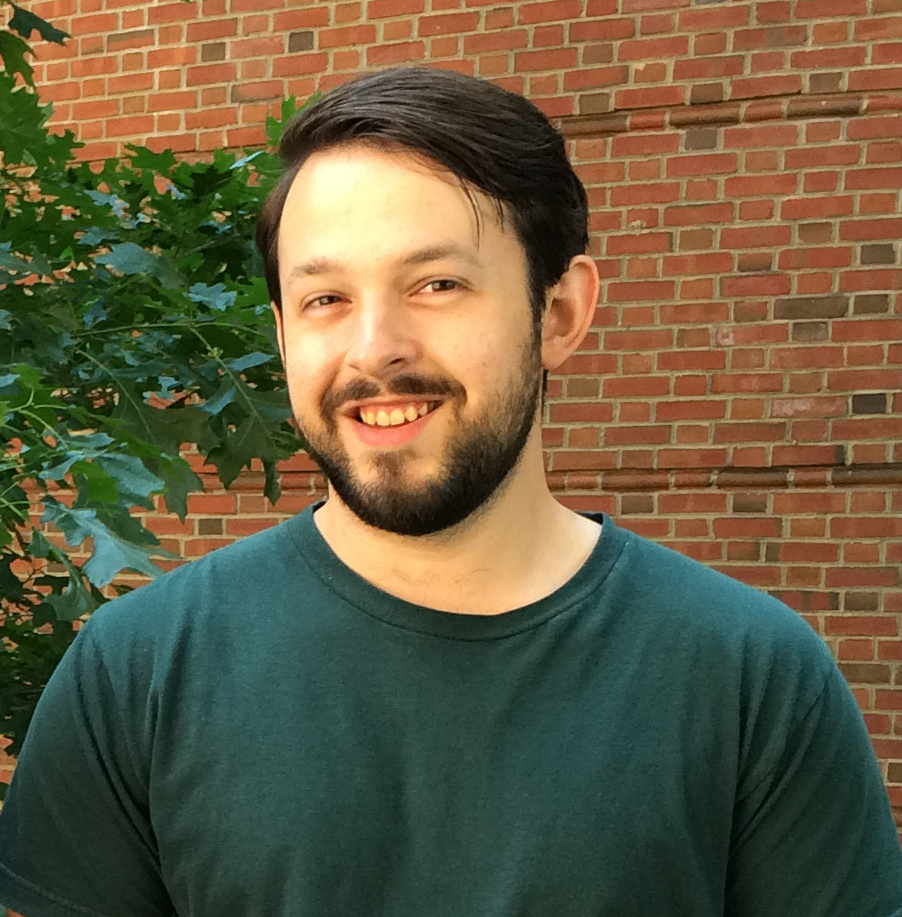Trainee Spotlight: Corey Rennolds

My name is Corey Rennolds, and I’ve been a postdoctoral researcher in Tania Rozario’s lab at UGA since August 2022. I’m originally from Cobb County, GA, where I went to grade school, received my B.S. in Biology from Georgia Tech in 2013, and completed my PhD at the University of Maryland, College Park in 2022.
What made you want to study science?
The big bucks, baby!! More honestly, I enjoy learning how things work for its own sake, and I liked the idea of a career spent always learning more about how things in the world work. I started as an undergraduate in engineering but quickly switched to biology when I realized that I was more interested in natural systems than artificial ones (and that I wasn’t very good at calculus). I have other interests of course, but science translates the most smoothly of those into a stable and rewarding way to make a living.
Why did you choose UGA?
I’m originally from the Atlanta area and spent a lot of time in Athens when I was an undergraduate, even though I went to Tech. Now living and working here feels like coming home for me. I finished my PhD and wanted to continue in a research-oriented direction as a postdoc in an academic setting, and UGA is a big, well-funded institution with a strong biology contingent and several faculty in the ballpark of my more narrow expertise. Altogether, it seemed like a good fit.
What is your project/research focus and why did you choose this research focus?
Dr. Rozario learned during her own postdoctoral work that the rat tapeworm Hymenolepis diminuta requires a population of stem cells maintained in the adult worm in order to grow and regenerate, but there was little information on how these cells are activated, how many different varieties there are, their plasticity, and how they differentiate into mature tissue types. Dr. Rozario wanted to hire a postdoc with experience in transcriptomics and regenerative biology in non-model organisms, which is fortunately my background. I thought the project was really interesting with opportunity to do novel work that would stand out. It also gives me the chance to learn a lot of cutting-edge techniques that can be valuable for my research in the long term.
Have you received any awards or honors?
Aside from the T32 postdoctoral fellowship through the CTEGD, I received a few scholarships, fellowships, and other awards during graduate school, including small research grants from Sigma Xi, the Cosmos Club, and Washington Biologists’ Field Club. I would also be remiss not to mention my first-place finish in the most recent CTEGD chili cook-off.
What are your career goals?
I spent most of graduate school as a TA (tip for prospective graduate students: ask your PI about funding!) and so racked up plenty of experience in teaching and discovered that I really enjoy doing it. I want teaching to be a significant part of my career activities going forward, as opposed to just full-time research. Research-wise, though, I am interested in building an independent research program focused on bridging evolutionary-developmental biology with comparative and ecological physiology. To put it simply, I want to study how living things grow, develop, and repair themselves, where and how they get the resources to do these things, and how those processes are affected by environmental factors, including over evolutionary timescales. Working with intestinal parasites is definitely an interesting and challenging context for thinking about these sorts of broad questions.
What is your favorite thing about UGA and Athens?
Athens is close enough to Atlanta to access its amenities but far enough away to be its own ecosystem free of the sprawl. It’s big enough to have a little of everything, including a vibrant and diverse arts scene, but small enough to get to know most of the people in whatever sphere you want to be involved in. The university offers plenty of opportunities for both intellectual stimulation and less-intellectual partying. The traffic isn’t too bad.
Any advice for a student interested in this field?
Don’t settle too much. It is perfectly fine to have standards during your education and assert yourself when called for. You should study what you enjoy, attend school somewhere you want to be, and work with people you get along with. Not everything will be perfect and you should learn when to compromise, of course, but it’s your life and your career. If something isn’t working out, make a change, and be open to alternative paths—if I didn’t take the initiative to change course when I did, I wouldn’t be a biologist now. Think carefully about what is in your best interest personally and professionally in both the short and long term. Also, learn when to identify opportunities to learn something useful or gain valuable experience. In CTEGD, there are a lot of different technical resources, training and professional development opportunities, and diverse faculty expertise; make use of all these things, it’s what they’re there for!
Support trainees like Corey by giving today to the Center for Tropical & Emerging Global Diseases.
